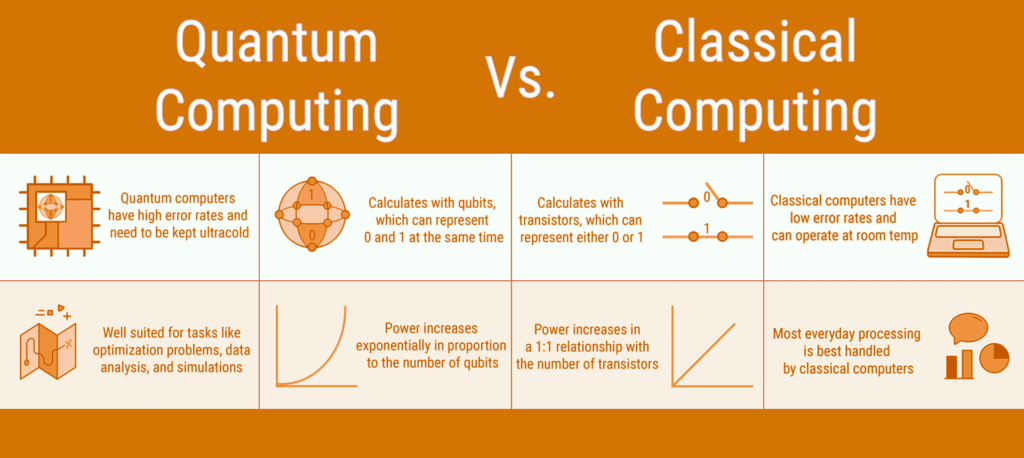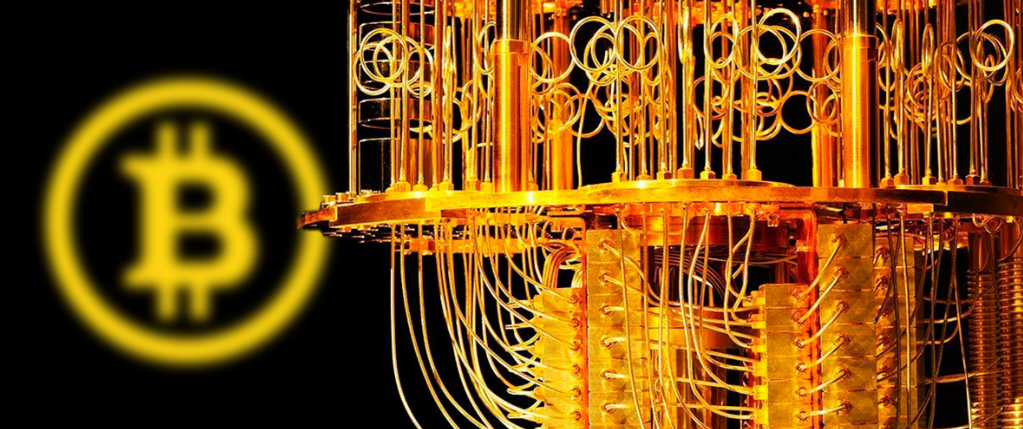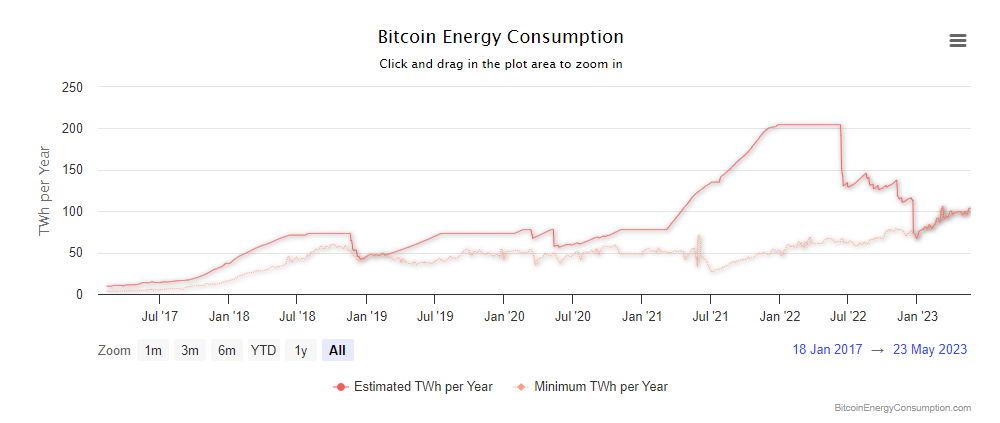In the world of cryptocurrencies, Bitcoin has emerged as a transformative force, revolutionizing the way we perceive and engage in financial transactions. Central to the operation and security of the Bitcoin network is the process of mining, where complex mathematical calculations are performed to validate transactions and maintain the integrity of the blockchain.
As the development of quantum computers advances at a rapid pace, an intriguing question arises: Can Quantum Computing mine Bitcoin faster? In this blog post, we will delve into the potential implications of quantum computing on Bitcoin mining efficiency, explore the security concerns surrounding it, and investigate the prospects of quantum computing in reducing Bitcoin’s energy consumption.
From Science Fiction to Reality: Demystifying Quantum Computing
Classical computers, which form the basis of our current digital infrastructure, rely on bits to store and process information. Bits can represent either a 0 or a 1, forming the foundation of binary code. Classical computers perform calculations by manipulating and processing these bits through logical operations.
However, Quantum computers harness the power of quantum mechanics to process information differently. Instead of using classical bits, quantum computers use quantum bits, or qubits. Unlike classical bits, qubits can exist in multiple states simultaneously, thanks to a quantum phenomenon called superposition.

Superposition allows qubits to represent more than just 0 or 1. A qubit can be in a state that is a combination of 0 and 1, known as a superposition state. This property grants quantum computers exponentially greater computational power compared to classical computers.
Another important principle of quantum computing is entanglement. Entanglement is a phenomenon where two or more qubits become linked in such a way that the state of one qubit is dependent on the state of the others, regardless of the physical distance between them. This correlation between entangled qubits enables quantum computers to process and manipulate information collectively, further enhancing their computational abilities.
So, by harnessing the power of superposition and entanglement, quantum computers can perform complex calculations much faster than classical computers. This parallelism enables it to tackle problems that are currently intractable for classical computers, including cryptography and optimization.
Meanwhile, it is important to note that quantum computers suitable for Bitcoin mining are still under development. They require a sufficiently large number of stable qubits and precise control mechanisms to perform the necessary calculations efficiently. As of now, quantum computers are still in their early stages, and practical implementation on a large scale remains a considerable technical hurdle.
Quantum Computers and Bitcoin: A Perfect Efficiency Match!
Currently, Bitcoin mining predominantly relies on specialized hardware known as Application-Specific Integrated Circuits (ASICs). These ASICs are specifically designed to perform the complex calculations required for mining Bitcoin, known as hash functions. Traditional computers, even powerful ones, struggle to compete with ASICs in terms of efficiency and speed.
Quantum computers, on the other hand, possess tremendous computational potential. With their ability to process vast amounts of data simultaneously, quantum computers could theoretically perform the required hash functions more efficiently than traditional computers or ASICs. This increased efficiency could lead to faster and more abundant mining of new Bitcoins.
One particular area where quantum computers could excel in Bitcoin mining is in solving the cryptographic puzzle known as the “proof-of-work.” The proof-of-work algorithm requires miners to find a specific hash value that satisfies certain criteria.

To that end, traditional computers perform a brute-force search by iterating through various possibilities until a valid hash is found. In contrast, quantum computers could utilize their parallel processing capability to explore multiple potential solutions simultaneously, potentially leading to a significant speedup in finding valid hashes.
Meanwhile, the scalability of quantum computers for Bitcoin mining remains uncertain. While they may demonstrate promising results in small-scale experiments, scaling up quantum computers to handle the vast computational requirements of the Bitcoin network is a formidable task. Overcoming technical hurdles, improving error correction techniques, and achieving fault-tolerant quantum computing are necessary steps for realizing the full potential of quantum computers in Bitcoin mining.
Moreover, the Bitcoin protocol itself may need to undergo significant changes to accommodate quantum computing. The cryptographic algorithms currently used by Bitcoin, such as the elliptic curve digital signature algorithm (ECDSA), are vulnerable to attacks from quantum computers. To ensure the long-term security of Bitcoin, the adoption of quantum-resistant cryptographic algorithms may become necessary.
Will Quantum Computing Shatter Bitcoin’s Security?
Bitcoin’s security relies on the computational difficulty of solving complex mathematical puzzles. The process of mining involves finding a specific hash value that meets certain criteria, which is challenging and time-consuming for classical computers. The underlying cryptographic algorithms that secure Bitcoin are designed to withstand attacks from classical computers.
However, quantum computers possess the potential to break cryptographic algorithms that are currently used to secure Bitcoin. Specifically, quantum computers could exploit vulnerabilities in the elliptic curve digital signature algorithm (ECDSA) used by Bitcoin. If a large-scale, error-corrected quantum computer were to become available, it could potentially compromise the security of Bitcoin by decrypting private keys and forging transactions.
Quantum Computing: The Savior of Bitcoin’s Energy Crisis?
One significant concern in the Bitcoin ecosystem is its substantial energy consumption. Bitcoin mining requires vast amounts of computational power, which in turn demands a considerable amount of electricity. Quantum computing may offer a potential solution to this issue.

As quantum computers have the potential to perform calculations more efficiently, they could reduce the computational resources needed for Bitcoin mining. This efficiency improvement would translate into lower energy consumption. However, it’s important to note that quantum computers themselves require significant energy and cooling infrastructure, so the overall impact on energy consumption would depend on the efficiency gains achieved.
Furthermore, the development of quantum-resistant cryptographic algorithms, designed to withstand attacks from quantum computers, could provide a long-term solution to Bitcoin’s security concerns. By adopting such algorithms, Bitcoin could maintain its security even in the face of quantum threats, potentially reducing the need for energy-intensive mining processes.
Conclusion
Quantum computing has the potential to revolutionize various industries, and Bitcoin mining is no exception. However, practical implementation challenges and security concerns remain.
The development of quantum-resistant cryptographic algorithms is essential for ensuring Bitcoin’s long-term security in the face of quantum threats. As quantum computing continues to evolve, it has the power to reshape the landscape of cryptocurrencies and their underlying technologies.
To know more about the usage of Quantum Computing in the crypto industry, go check out SunCrypto Academy.
Disclaimer: Crypto products and NFTs are unregulated and can be highly risky. There may be no regulatory recourse for any loss from such transactions. All content provided is for informational purposes only, and shall not be relied upon as financial/investment advice. Opinions shared, if any, are only shared for information and education purposes. Although the best efforts have been made to ensure all information is accurate and up to date, occasionally unintended errors or misprints may occur. We recommend you to please do your own research or consult an expert before making any investment decision. You may write to us at [email protected].





